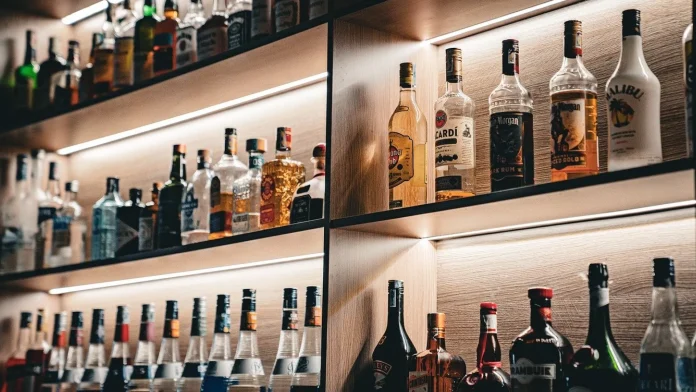Saudi Arabia announced the opening of a shop in Riyadh to sell alcohol to non-Muslim expatriates, the first in more than 70 years.
The clientele will be limited to diplomatic staff, who have been importing drinks in sealed official packages known as diplomatic pouches for years. Officials stated that the shop would counter “the illicit trade of alcohol.”
The new shop, located in Riyadh’s Diplomatic Quarter west of the city centre, is expected to open within weeks, according to the document. However, the distribution of alcohol will have some restrictions.
Firstly, diplomats will need to register in advance and obtain government authorisation. Next, those strictly over the age of 21 will be allowed into the shop and “proper attire is required” at all times inside. Thirdly, ambassadors will not be able to send a proxy, such as a driver, for drinks.
In addition, monthly limitations are planned. Visitors will be restricted to 240 alcohol “points” per month, where one litre of spirits will be worth six points, one litre of wine will be worth three points and one litre of beer will mean one point.
Under current Saudi legislation, penalties for the consumption or possession of alcohol can include fines, imprisonment, public flogging and deportation of unauthorised foreigners.
The document also says authorities plan to introduce a “new regulatory framework” that will also allow diplomats to import “specific quantities” of alcohol to “put an end to (…) an uncontrolled exchange of such goods.” Previously, diplomatic staff had to use their “pouches,” which cannot be opened by the authorities of the host country, to import limited quantities of alcohol.
Other Gulf countries have similar alcohol policies. However, the UAE and Qatar also allow the sale of alcohol to non-Muslims over the age of 21 in hotels, clubs and bars.
Although alcohol is forbidden by Islam, Saudi Arabia maintained a conciliatory attitude towards its presence in the kingdom until 1952.
All this changed after Prince Mishari bin Abdulaziz Al-Saud shot dead the British vice-consul in Jeddah, Cyril Ousman, in 1951 for refusing to pour him another drink at a function. A year later, King Abdulaziz imposed a total ban on alcohol, with Mishari being convicted of murder.
